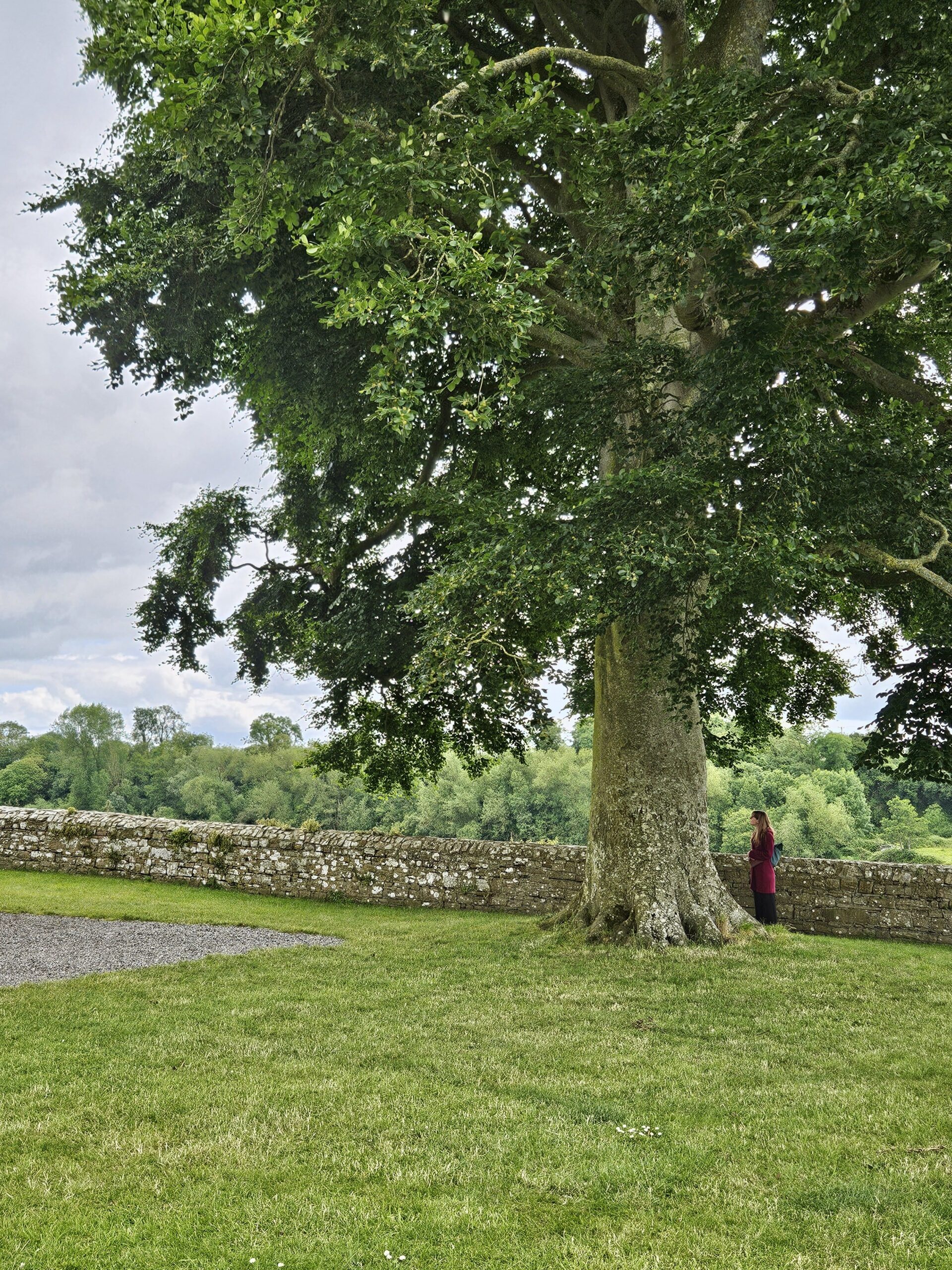One of the most important experiences I had in my MFA was writing a poem. Here’s what happened:
My teacher told us to go outside sometime that week and read Percy Bysshe Shelley’s “Ode to the West Wind.” She said this poem was meant to be read aloud….

loudly.
Yell it.
Yell the poem as loud as you can.
Maybe even climb into a tree first and yell the poem from the tree passionately.
The poem is addressing the West Wind after all: passion should be met with passion. Read the poem as many times as you can, she said, as if you were etching his rhythm into your flesh. Then write your own poem. And don’t revise it.
I did this, tree and all. But that was just the beginning.
Sometime also during that week I had an encounter with a woman that stirred my anger to a boiling point. I won’t go into details, but her words shot into a place in my body she and her nosiness didn’t belong. My husband and I went for a bike ride that afternoon along the Catawba River. The rhythm of pedaling and the heat that rose up from my core stoked flames that had long been cold. Whatever had been a sleeping dragon began to burn. I held it in and held it in, a sort of raging quiet before the storm, until we stopped for a snack in a meadow by the water. I took out my journal and began to write. I didn’t really think about Shelley’s West Wind, at least consciously, but as I began to write I felt as if a dormant root had been watered after a long drought. As a rhizome meanders and sends up shoots in various places, I pushed through the earth and sent up stalk after stalk and aired feelings long shoved deep into the dark of a closet. They came out with gasping breaths. They astonished me. I wrote beyond emptiness and scraped up whatever residue remained beyond it. When we continued our bike ride, I felt more spent by the burst emotion than I did the exertion of pedaling.
The next day I typed out my uncoiled dragon: I shaped my raw words into a poem, but was very cautious to not change any of the words. Then next class, when we read our poems aloud my teacher was stunned. Not by whether my poem was “good” or not, but the fact that this was the first time she heard my voice.
She explained to us why we need to be careful when we revise: when we write without anxiety over audience, and are simply writing ourselves (and I don’t mean for, but simply: writing the self), our first words appear for a reason. They bubble up from the unconscious, like images in a dream. We should treat them with respect. Thus, revision must be done with caution: we should trust our first words.
But this points to not just an issue with revision, but how we write first drafts at all. Most of the writing I had done before I was not writing for myself, but for some future imagined audience. I was writing what I anticipated people expected to be poetry….and then revising with the same approach.
My teacher gave me the prescription of absolutely no revision. I was to write 50 poems over the summer but do not revise them. And that first poem followed by the subsequent 50 unlocked something in me. It’s not like I don’t continue to struggle with imagined audience and expectations. But I began to learn how to notice when I was forcing language into the shape of box when really it wanted to be a rhizome.
I tell my writing students one responsibility of a writer is to notice. But what do we notice? We begin by learning how to notice what a writer chooses in a finished piece of writing. We move to noticing the world around them and their responses to the phenomena. But something just as important about writing is noticing the writing self in the act of writing:
Am I breathing shallowly or deeply? (kind of in between right now) Where is the tension in my body as I type this? (in my shoulders) Who am I imagining reading this right now? (an unknown public) Is that really helping me write my first draft? (no) What do I taste or smell? (the taste of chai tea cooling, the pine scent from a candle that flickers behind frosted glass) What do I hear? (I’m listening to the newly released Wardruna album Birna which has me thinking about the importance of ancestors) How am I feeling right now? (a general anxiety that I can’t connect to anything in particular, but which I associate with my neurodivergence; something to do with the external pressure of imagined lack of time)
Indeed, this is a daily lesson, a daily practice. Writing yourself takes vigilance. And a kind of softening to the self. The kind of surrender I associate with yin yoga when I’ve held a pose for just the right amount of time that makes my whole body feel utterly quenched.
And I can’t end without thanking my teacher for guiding me to the beginning of this journey of writing myself: a (witchy) blessing to you.
(I must also acknowledge Alexandria Peary’s Prolific Moment which I am spending a lot of time with right now, as well as Robert Yagelski’s Writing as a Way of Being, which I just began and will likely be writing more about soon.)

